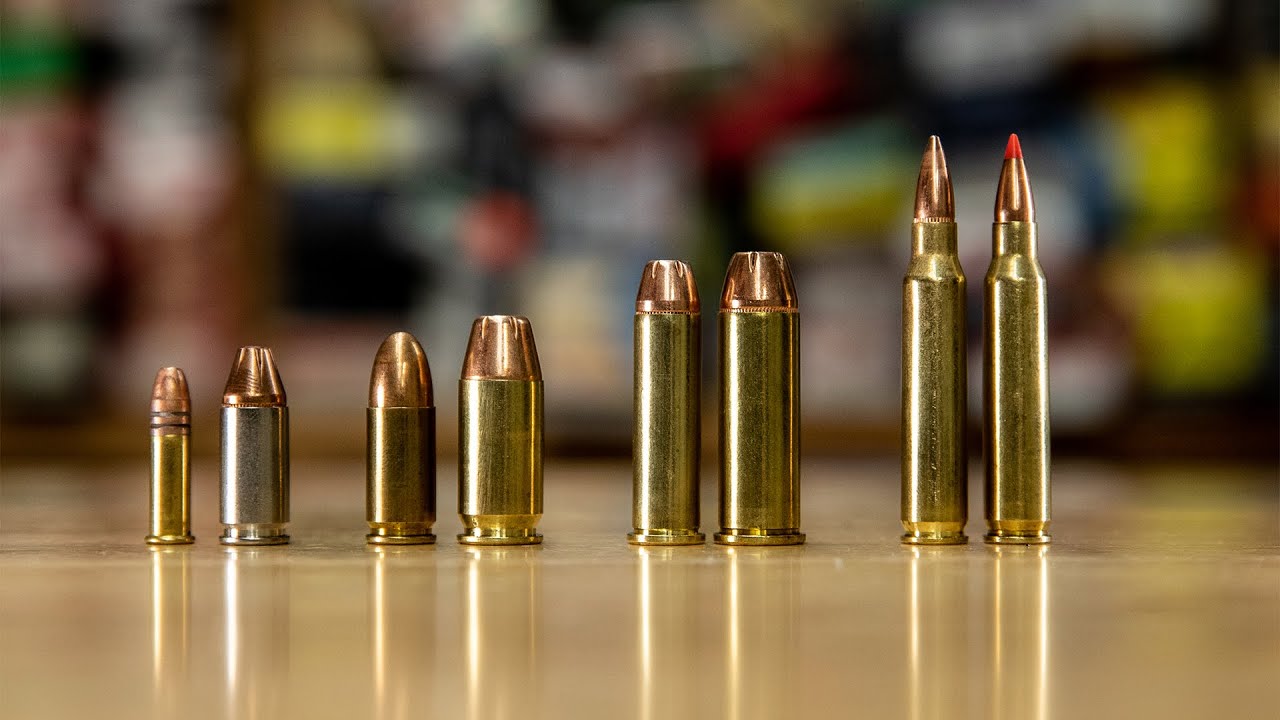Choosing the right bullet size for your firearm is essential to ensure optimal performance and safety. The right bullet size aids in accuracy, reduces recoil, and prevents damage to your firearm. For a deeper understanding of the different types of ammo and calibers, you might want to explore types of ammo.
Understanding Bullet Basics
What is a Bullet?
A bullet is a projectile that is expelled from a firearm’s barrel during the firing process. It is a key component of ammunition, designed for precision and impact. Bullets come in various shapes and sizes, each suited for different purposes, such as target shooting, hunting, or self-defense.
Components of a Bullet
Bullets consist of several parts: the core, jacket, and sometimes a tip made from different materials. The core is typically made from lead, while the jacket is often made from copper or similar metal to provide strength and reduce barrel wear. Some bullets also have a polymer tip to aid in expansion upon impact. Understanding these components helps in selecting the appropriate bullet for your needs.
Bullet vs. Cartridge
It’s important not to confuse a bullet with a cartridge. The bullet is just one part of the cartridge, which also includes the case, gunpowder, and primer. The cartridge is the complete unit that is loaded into the firearm. Misunderstanding this distinction can lead to improper selection of ammunition, affecting firearm performance.
Caliber and Bullet Size
Definition of Caliber
Caliber refers to the internal diameter of a firearm’s barrel and, by extension, the diameter of the bullet that is fired from it. It is usually measured in inches or millimeters. For example, a .45 caliber bullet has a diameter of 0.45 inches, while a 9mm bullet has a diameter of 9 millimeters.
Common Caliber Sizes
Common caliber sizes include .22, .38, .45, 9mm, and .308, among others. Each caliber is designed for specific types of firearms and uses. For instance, the .22 caliber is often used in small, lightweight rifles and pistols for target shooting and training, while the .308 is favored for hunting due to its power and range.
How to Measure Bullet Diameter
Measuring bullet diameter involves using a caliper or micrometer to get precise measurements. Accurate measurements are crucial as even slight variations can affect the bullet’s performance and compatibility with the firearm. Always refer to the firearm manufacturer’s specifications to ensure compatibility.
Matching Bullet Size to Your Firearm
Checking Your Firearm’s Caliber
Before purchasing ammunition, the first step is to check your firearm’s caliber. This information is usually inscribed on the barrel or the frame of the gun. Adhering to the specified caliber ensures that the bullet fits correctly in the barrel, leading to safe and effective shooting.
Manufacturer’s Guide and Recommendations
Consulting the manufacturer’s guide is another vital step. Manufacturers provide detailed recommendations regarding suitable bullet sizes and types for each firearm model. Ignoring these recommendations can lead to malfunction or even accidents.
Importance of Barrel Specifications
Barrel specifications, including rifling and twist rate, also play a significant role in determining the best bullet size. The rifling grooves inside the barrel impart a spin to the bullet, enhancing accuracy. Matching the bullet size to these specifications optimizes the firearm’s performance.
Types of Firearms and Their Compatible Bullet Sizes
Handguns
Handguns such as pistols and revolvers primarily use smaller caliber bullets like .22, .380 ACP, 9mm, and .45 ACP. The choice of caliber depends on the intended use, with larger calibers generally offering more stopping power for self-defense and smaller calibers being suitable for target practice and training.
Rifles
Rifles use a range of calibers from .22 LR to .308 Winchester and beyond. Smaller calibers like .22 LR are often used for plinking and small game hunting, while larger calibers like .308 are favored for larger game and long-range shooting.
Shotguns
Shotguns, unlike other firearms, use shells instead of traditional bullets. Shell sizes are denoted by gauge, with common sizes being 12 gauge, 20 gauge, and .410 bore. The choice of gauge affects the pellet size and number of pellets, impacting the spread and impact of the shot.
Factors Affecting Bullet Selection
Purpose of Use (Self-defense, Hunting, Sport)
The intended use of the firearm significantly influences bullet selection. For self-defense, stopping power and rapid incapacitation is crucial, so larger calibers like .45 ACP might be preferred. Hunters may choose bullets designed for expansion and penetration, while target shooters may opt for bullet types that offer high accuracy with minimal recoil.
Recoil and Control
Recoil management is another important factor. Larger calibers generally produce more recoil, which can affect accuracy and control, especially for novice shooters. Weighing the pros and cons of each caliber regarding recoil helps in making a more informed choice.
Ballistic Performance
Ballistic performance, including bullet speed, trajectory, and impact force, should also guide your choice. Different calibers and bullet types exhibit varied ballistic characteristics, which can be crucial for specific applications like long-range shooting or penetration power.
Safety and Performance Considerations
Dangers of Using Incorrect Bullet Size
Using the incorrect bullet size can lead to catastrophic failures, including firearm damage and personal injury. The bullet may not fit properly in the barrel, leading to poor performance and safety risks.
Ensuring Proper Fit and Function
Ensuring the proper fit and function involves regular checks and maintenance. Regularly inspect your ammunition and firearm to prevent any issues related to wear and tear, misalignment, or debris.
Regular Maintenance and Inspection
Routine maintenance and inspection of your firearm and ammunition ensure that everything operates smoothly. Cleaning the barrel, checking for any signs of damage, and ensuring that the ammunition is stored correctly are crucial steps to maintain safety and performance.
Tips for First-Time Buyers
Seeking Professional Advice
For first-time buyers, seeking professional advice is invaluable. Gun store professionals, trainers, and experienced shooters can provide insights and recommendations based on experience and knowledge.
Conducting Research
Researching is essential before making a purchase. Reading reviews, watching video tutorials, and exploring guides like the types of ammo can provide you with a wealth of information to make an informed choice.
Testing and Practicing with Different Ammunition Types
Testing and practicing with different types of ammunition can help you find the right match for your firearm. Visiting a shooting range to try out various calibers and bullet types will give you practical insights into their performance and suitability for your needs.



